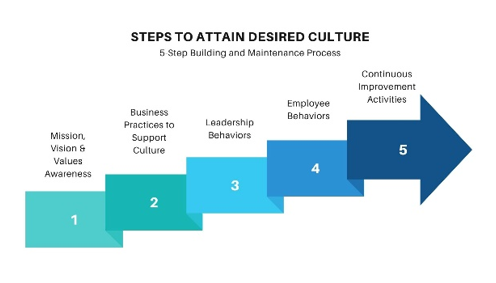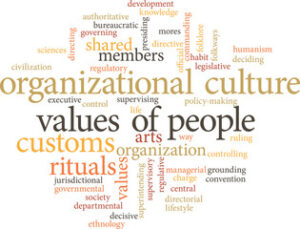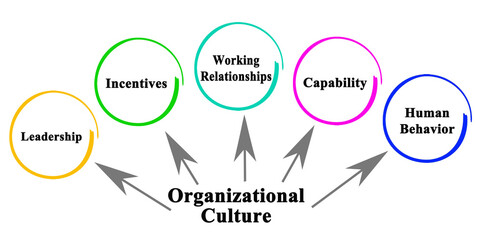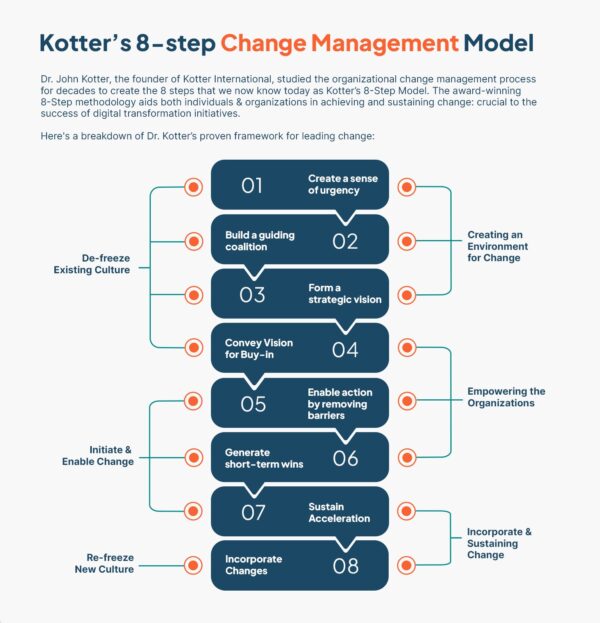Organizational Culture

The Appleton Greene Corporate Training Program (CTP) for Organizational Culture is provided by Dr. White Certified Learning Provider (CLP). Program Specifications: Monthly cost USD$2,500.00; Monthly Workshops 6 hours; Monthly Support 4 hours; Program Duration 12 months; Program orders subject to ongoing availability.
Personal Profile
Dr. White is a business operations and human resources executive. She has achieved a Doctor of Business Administration degree and is a certified Project Management Professional. Dr. White has provided project, contract, and human resources management support to several large Information technology firms, such as Lockheed Martin and General Dynamics, as well as numerous small business federal contractors with their overall business operational, training, and compliance needs. She has had commercial experience in the United States of America; more specifically within the Baltimore-Washington DC metropolitan area, Northern Virginia, and the state of Florida. Dr. White brings a direct, engaging approach to each collaboration, and has effectively served clients in the Technology, Healthcare, Government Contracting, and Wellness Services industries.
Dr. White has formal training in Information Technology and has served as a Senior Manager on Software Development and Implementation projects for Federal and Defense contractors. She has used her technical background to successfully recruit, hire, train, and retain other IT professionals, based on her experience and understanding of a project’s technical, functional, and soft skill requirements. Using these skills as a launching pad, Dr. White seamlessly incorporated contract management (procurement and compliance) into her toolbox for a truly unique combination of skills, effortlessly assisting clients with many of the major aspects of effective and efficient operations, including human resources administration, contract management, leadership and development training, meeting facilitation, creative problem solving, employee development and recognition, development of organizational policies and procedures, employee relations, performance evaluations, timekeeping and payroll, as well as benefits review and administration.
As the lead operational executive for a small business federal contractor, Dr. White oversaw the program budgets; developed and implemented the organization’s guidelines; provided executive management for clients, vendors, technical and professional staff; and assisted with business development, proposal and marketing activities as needed. Within a 5-year period, the staff numbers increased from 10 to over 50 multi-state located employees, while annual revenues grew from $3 million to over $15 million. Dr. White effectively provided procurement and compliance support to multiple federal agency contracts, which resulted in several add on work requests and organic growth.
To request further information about Dr. White through Appleton Greene, please Click Here.
(CLP) Programs
Appleton Greene corporate training programs are all process-driven. They are used as vehicles to implement tangible business processes within clients’ organizations, together with training, support and facilitation during the use of these processes. Corporate training programs are therefore implemented over a sustainable period of time, that is to say, between 1 year (incorporating 12 monthly workshops), and 4 years (incorporating 48 monthly workshops). Your program information guide will specify how long each program takes to complete. Each monthly workshop takes 6 hours to implement and can be undertaken either on the client’s premises, an Appleton Greene serviced office, or online via the internet. This enables clients to implement each part of their business process, before moving onto the next stage of the program and enables employees to plan their study time around their current work commitments. The result is far greater program benefit, over a more sustainable period of time and a significantly improved return on investment.
Appleton Greene uses standard and bespoke corporate training programs as vessels to transfer business process improvement knowledge into the heart of our clients’ organizations. Each individual program focuses upon the implementation of a specific business process, which enables clients to easily quantify their return on investment. There are hundreds of established Appleton Greene corporate training products now available to clients within customer services, e-business, finance, globalization, human resources, information technology, legal, management, marketing and production. It does not matter whether a client’s employees are located within one office, or an unlimited number of international offices, we can still bring them together to learn and implement specific business processes collectively. Our approach to global localization enables us to provide clients with a truly international service with that all important personal touch. Appleton Greene corporate training programs can be provided virtually or locally and they are all unique in that they individually focus upon a specific business function. All (CLP) programs are implemented over a sustainable period of time, usually between 1-4 years, incorporating 12-48 monthly workshops and professional support is consistently provided during this time by qualified learning providers and where appropriate, by Accredited Consultants.
Executive summary
Organizational Culture
Organizational culture is the collective shifting of individual behaviors to a shared, common goal. It is an on-going process of building awareness of an organization’s current situation and the steps needed to get to where the organization wants to be – an inclusive, productive, high-performing company where everyone has responsibility in achieving the corporate objectives. The culture reflects how employees, customers, vendors, and stakeholders experience the organization and its brand. A great organizational culture is the key to developing the traits and behaviors necessary for business success and is a common denominator among the most successful companies. On the other hand, an ineffective culture can bring down the organization and its leadership.
Although most people would agree that they want to work for a healthy and productive company, and most management staff would like to believe they provide an inclusive, high-performing work environment, this isn’t the reality of most organizations. It is reported that only about one-third of HR leaders believe their organizations have the culture they need to drive future business, and getting there is no easy task — more than half of all organizations fail in transforming their cultures. Creating an ideal work environment takes that – work. It requires a commitment from senior management to provide the resources and support needed to move from the Now to the more desirable Next.
It involves all levels of staff, from individual contributors to executive management. In order to create a sustainable, productive environment, an organization’s culture must be addressed from a holistic perspective. Organizational culture can manifest itself in a variety of ways, including leadership behaviors, communication styles, internal messages, and corporate celebrations. Some commonly used terms for describing cultures may include hierarchy, customer-focused, innovative, ethical, technology-driven, process-oriented, or family-friendly. Because culture is difficult to define, organizations may have trouble maintaining consistency in their messages about culture. Culture is created through consistent and authentic behaviors, not just policy. This includes understanding the current corporate behavior, focusing on accountability, being ethical and intentional in decision making, learning how to communicate effectively and with civility in all situations, and motivating employees to high-performance in a fair and just environment, on a regular basis.
An article published on LinkedIn.com stated that one of the things employees dislike most about their work environment is the lack of context that their employers provide. This means many employees feel they do not get enough information from their employers to have answers to basic questions like, “What’s really expected of me?” “How will my performance be judged?”, and “How does what I do, day-in-and-day-out, help the overall company achieve its goals?” Also, the employees generally felt they weren’t appreciated or recognized for their individual contributions and talents. It is important for all employees to have these essential questions answered because it gives a sense of meaning to their work. When workplace culture is designed with the workers in mind, the employees are more likely to feel more comfortable, supported, and valued.
An organization’s culture tends to emerge over time, shaped by the leadership and by actions and values perceived to have contributed to earlier successes. The management of organizational culture starts with identifying a company’s organizational culture traits. The traits are the core business activities, processes and philosophies that characterize how an organization currently does business day-to-day. Typically, the organization’s founders and leaders create shared traits and beliefs. Because those beliefs initially proved successful, often they go unchallenged and unchanged; however, those beliefs may now be outdated and hinder future success.
When an organization does a decent job assessing its culture, it can then go on to establish policies, programs and strategies that support and strengthen its core purpose and values. In aligned organizations, the same core characteristics or beliefs motivate and unite everyone, cascading down from the C-suite to individual contributors. Although every organization’s culture is different, the cultures of high-performing organizations consistently tend to reflect certain qualities, such as alignment of the company’s objectives and its employees’ motivations; acknowledgement and appreciation; trust where team members can express themselves and rely on others to have their back when needed; integrity when teams can rely on each other to make decisions; and psychological safety that provides the support employees need to take risks and provide honest feedback.
Creating the ideal corporate culture may seem like a mirage to those not willing to put in the work. Others may even question if there are tangible benefits to be realized, if achieved. With the increasing diversity of the workforce, reaching across various generations, genders, and geographical locations, investing in the development of a sustainable, organizational identity can give rise to both tangible and intangible assets, at every level of the organization. Understanding today’s workforce and society’s demands on that workforce is necessary towards creating an appropriate culture that sufficiently represents today’s organization.
Employees now have access to information and people around the corner and around the globe, all at their fingertips. The pandemic brought light to three types of transformation affecting almost every industry: the adoption of digital technologies, the development of new business models, and the implementation of new ways of working. All of these are linked to the cultural identity of the organization. Most companies have been forced to address one or more of these types of transformation and those that aren’t addressing them are at risk for becoming obsolete.
Leaders also need to understand that culture is dynamic and that change will happen even if nothing is done to guide it. These changes may or may not be the ones needed to move the company in the desired direction. Employee values, mindset, and behaviors will continue to evolve, even if nothing is done to properly guide them. For these reasons, leaders must take an initiative-taking approach to build the right culture now and avoid the need to reshape culture as an afterthought.
For example, Salesforce’s culture transformation is a standout example of how a values-driven approach can profoundly reshape an organization, incorporating pillars of Trust, Equality, Listening, and Acknowledgement. At Salesforce, trust is not just a buzzword but the foundation of their entire business ethos. This trust extends beyond their technology to encompass relationships with employees, customers, and the community, fostering a transparent and reliable environment. Equality is another core value at Salesforce, where they are committed to creating an inclusive and diverse workplace. This commitment goes beyond mere policy statements; it is evident in their hiring practices, team structures, and community engagements. By actively promoting equality, Salesforce ensures that every voice is heard and valued.
Moreover, Salesforce’s approach to Acknowledgement is deeply embedded in their culture. They recognize and celebrate the contributions of their employees, not just in terms of business achievements but also in their efforts to foster a more inclusive and supportive workplace. This culture of acknowledgment encourages employees to bring their best selves to work, knowing that their efforts and contributions will be recognized and appreciated. Listening is another critical aspect of Salesforce’s culture. They understand the importance of not just hearing but actively responding to the needs and feedback of their customers and employees. This approach has enabled Salesforce to remain agile and responsive in a fast-evolving industry, ensuring that they stay ahead of the curve in both technology and employee satisfaction. The Salesforce’s transformation, guided by these values, has not only led to significant business success but also to a workplace that is a trailblazer in corporate culture.
Although each organization is different and management must adapt for the specific arena in which they operate, there are a number of consistent elements that should be addressed to achieve the full potential of any organizational culture. These elements are heavily interwoven and help create the mindset that will define the day-to-day environment of the organization. Over the course of this program, each session will present an element that addresses the components of organizational culture, including Leadership, Motivation & Incentives, Human Behavior, Capability & Performance, and the Working Relationships within the organization. Each module will also incorporate activities that focus on the organization’s overall well-being, collaboration, and accountability in an easily digestible and retainable manner.
Curriculum
Organizational Culture – Part 1- Year 1
- Part 1 Month 1 Organizational Behavior
- Part 1 Month 2 Business Ethics
- Part 1 Month 3 Improving Self-Awareness
- Part 1 Month 4 Communication Strategies
- Part 1 Month 5 Workplace Civility
- Part 1 Month 6 Conflict Resolution
- Part 1 Month 7 Change Management
- Part 1 Month 8 Coaching & Mentoring
- Part 1 Month 9 Taking Initiative
- Part 1 Month 10 Diversity & Inclusion
- Part 1 Month 11 High-Performance Teams
- Part 1 Month 12 Performance Management
Program Objectives
The following list represents the Key Program Objectives (KPO) for the Appleton Greene Organizational Culture corporate training program.
Organizational Culture – Part 1- Year 1
- Part 1 Month 1 Organizational Behavior – Every company has a personality, just like people do. This personality is what we call corporate or organizational behavior. Organizational behavior is an important aspect of any business. Identifying and developing an organization’s behavior is like helping a company grow up to be a good citizen. It’s not just about rules and regulations but also how a company behaves, makes decisions, and treats its employees and customers. The right behavior can cause a company to skyrocket with effective productivity and reputation. There are many different ways to influence organizational behavior change, but the first step is to understand what organizational behavior is. It includes corporate social responsibility, which means companies doing good things for society, and corporate conduct policy, which are the company’s rules. It is often shaped by the company’s history, mission, and leadership style, but it is influenced by the actions and decisions of all employees. The objective of this workshop is for participants to understand why people behave as they do within organizations, by first appreciating the complex nature of individuals, and second, by being able to identify causes and effects of individual behaviors. The collective behaviors of individuals within an organization can create an atmosphere that strongly influences business performance, for better or worse. To create a healthy and successful organization, it is important to first understand the ins and outs of organizational behavior.
- Part 1 Month 2 Business Ethics – Business ethics are the moral principles that function as guidelines for the way a business conducts itself and its transactions. Business ethics considers how humans thrive both in business settings and as a result of actions that organizations take. As the world continues to grow more politically correct – an increased focus on proper business ethics and strong adherence to them become ever more the norm. A company’s ethics will determine its reputation. Good business ethics are essential for the long-term success of an organization. Implementing an ethical program will help foster a successful company culture and potentially increase profitability. Developing a business ethics program takes time and effort, but doing so will do more than improve business, it will change lives. A company’s ethics will have an influence on all levels of business. It will influence all who interact with the company including customers, employees, suppliers, competitors, and others. All of these groups will have an effect on the way a company’s ethics are developed. It is a two-way street, the influence goes both ways, which makes understanding ethics a particularly important part of doing business today. Ethics is especially important, as news can now spread faster and farther than ever before. At the end of this workshop, participants should be able to define and understand ethics; understand the benefits of ethics; create strategies to implement ethics in the workplace; identify ethical and unethical behavior; and learn how to make ethical decisions to lead with integrity.
- Part 1 Month 3 Improving Self-Awareness – A vital way of becoming more effective in both business and life is by becoming more self-aware. If you can become aware of yourself – your strengths and your weaknesses – then, you can become aware of the affects you create. Self-awareness is the ability to focus on yourself and how your actions, thoughts, or emotions do or don’t align with your internal standards. Once you understand this, you know how to change them, or even whether you should. When you have a greater awareness of thinking, learning, and personality styles, you also have a responsibility to be more adaptable in your interactions with others. Being self-aware also means being able to recognize how other people see you.
Workshop participants will engage in sessions that help them define the self and distinct aspects of the self; learn from introspection; understand the nature and value of emotions; appreciate themselves and appreciate others, with an overall goal of improving workplace effectiveness. - Part 1 Month 4 Communication Strategies – Communication is defined as the imparting or interchange of thoughts, opinions, or information by speech, writing, or signs. Communication also has the potential to change the behavior of others. For the better part of every day, we are communicating to and with others. Both individuals and organizations can miss opportunities because of a lack of communication or poor communications skills. The effectiveness of your communication can have many different effects on your life, including stress levels; relationships with others; work and personal life satisfaction levels; productivity; ability to meet goals and achieve dreams; and the ability to solve problems. This workshop will focus on understanding the different methods of communication and how to make the most of each of them, identify ways that communication can happen, identify barriers to communication and how to overcome them, develop non-verbal and paraverbal communication skills, as well as how to listen actively and effectively.
- Part 1 Month 5 Workplace Civility – Rudeness is an epidemic costing industry millions of dollars a year, resulting in an environment not conducive to getting work done, dissatisfied clients, and in some cases, blatant tolerance for abuse and harassment. To address the growing problem of incivility in the work setting, this workshop introduces the concept of civility, its importance to a company, as well as its typical causes and effects. Skills needed to effectively practice civil behavior, as well as the ways organizations can systematize civility in the workplace will also be discussed. These workshop sessions will define civility and understand its causes; understand the costs of incivility, as well as the rewards of civility, within the workplace; learn practical ways of practicing workplace etiquette; learn skills in diagnosing the causes of uncivil behavior; and understand how effective communication skills lead to a more civil workplace. Participants will engage in discussions and activity that demonstrate the idea that even a little consideration can go a long way.
- Part 1 Month 6 Conflict Resolution – Wherever people come together, there is the possibility of conflict. As we know, conflict is inevitable and anyone can experience conflict. People often assume that conflict is always negative. This is not true. People are inherently different, and conflict simply happens when those differences become known. Viewing conflict in this way can help us maximize the possible positive outcomes of the problem at hand. Equipped with a conflict resolution process, people can explore and understand those differences, and use them to interact in a more positive and productive way. This workshop provides a process that participants can use to modify and resolve conflicts. Conflict resolution skills, including dealing with anger and stress will be discussed. Participants will build upon the skills learned from the previous workshops to understand what conflict and conflict resolution mean; understand the most common phases of the conflict resolution process; and practice adapting the process for all types of conflicts.
- Part 1 Month 7 Change Management – Change is a constant in many of our lives, affecting the way we perform daily tasks and live our lives. All around us, technologies, processes, people, ideas, and methods often change, affecting the way we perform daily tasks and live our lives. This workshop will give leaders tools to implement changes more smoothly and to have those changes better accepted. This workshop will also give all participants an understanding of how change is implemented and some tools for managing their reactions to change. Change management initiatives have now become a business discipline, driving bottom-line results through changes in systems and behaviors. Managing change has therefore become a critical skill, both for leadership and for workers in an organization. It is important to manage change by creating and implementing a strategy that defines an approach consistent with the unique needs of the organization. Through this workshop, participants will learn how to develop a change strategy and build support for the change; discuss individual motivators for change; when to appeal to emotions versus facts; understand the importance of change management and communications plans; learn how to effectively address concerns; develop strategies for aligning people with a change; describe the importance of resiliency in the context of change and explain the importance of flexibility in the context of change.
- Part 1 Month 8 Coaching & Mentoring – Coaching is a process of relationship building and setting goals. How well one coaches relates directly to how well they are able to foster a great working relationship with employees. This workshop focuses on how to better coach employees to a higher performance. We will also discuss how to identify the steps necessary in defining the current state or reality of an employee’s situation; identify the steps needed in defining options for an employee and turn them into a finalized plan; and how to identify the benefits of building and fostering trust. Participants in this workshop will learn the importance of how to identify and set appropriate goals. Without relevant and appropriate goals, you are navigating blindly, causing frustration for both you and your employee, because you never seem to make any improvement. In addition, participants will understand how to define the current state or reality of an employee’s situation; define options for employees and turn them into an action plan; motivate employees to accomplish defined plans; understand the benefits of fostering trust; and overcome common obstacles to employee growth. We will also discuss the difference between mentoring and coaching; their different objectives, how to identify when the coaching is at an end and how to transition employees to other growth opportunities.
- Part 1 Month 9 Taking Initiative – Organizations value employees who are self-starters and can work independently with minimal direction from supervisors. Initiative is the ability to assess a situation and independently take action to address it. Taking initiative demonstrates valuable skills by showing that you can manage different tasks on your own and work with a variety of different people and departments. Proactive employees tend to take more responsibility for their actions and display qualities that make them good leaders. Initiative is a skill that everyone can use in their careers. It is what sets people apart from others and the competition. Not everyone is comfortable with taking the initiative, or even knows how to do so. It is something that is developed mentally and takes strength to do. Initiative is deep down inside all of us, but the successful ones are the ones who use it. Learning to take initiative can offer many benefits. Taking the initiative can provide individuals with a sense of self-control both in their personal and professional lives. This workshop will help participants identify what initiative looks like; recognize when steps outside the norm should be taken; build self-confidence; learn to find opportunities; understand the good and bad aspects of initiative; and how to balance initiative with restraint.
- Part 1 Month 10 Diversity & Inclusion – With the world becoming more mobile and varied, diversity has taken on a new importance in the workplace. Diversity is the inclusion of a wide variety of people of different races or cultures in a group or organization. Everybody is different and we can encounter a diverse set of people every day. We are each responsible for changing our stereotypes and breaking down barriers. Everyone should be mindful to treat each person with respect and dignity, especially in the workplace. It is vital that every employer and employee understands the concepts of diversity. This workshop will help participants understand what diversity is and how they can help create a more diverse and inclusive world at work. We will discuss the impact of performing cultural audits to assess the overall working environment, unwritten norms, possible barriers, and the existence of race, gender, and class issues. We will also discuss stereotypes and biases, how they develop, identify ways to encourage diversity in the workplace, and discourage discrimination. As participants gain more awareness and knowledge about diverse groups different, it is expected that not only will stereotypes lessen, but participants will also become better equipped to educate and challenge others about their stereotypes.
- Part 1 Month 11 High-Performance Teams – In today’s business world, it is necessary to find multiple ways to increase productivity, without letting your product or service suffer. Assembling a high-performance team of well-trained employees is one way to increase productivity while maintaining quality. Anyone seeking to develop a high-performance team will face the same challenges as any other team. When creating high performance teams, however, you will have the skills to address these challenges and move your group forward through competition, turnover, productivity, and fear. While It is easy to talk about high performance teams, how are they formed, and what benefits do they provide? A high-performance team is a group of extremely focused people who come together to meet a goal. The team members take pride in their team and meeting their goals. The team works efficiently, each member an essential component to a well-oiled machine. In creating high performance teams, employees become more satisfied, and their quality of work improves. Taking the time to build high performance teams in an organization creates loyalty, creates visibility, enhances collaboration, and provides optimum productivity. Workshop participants will understand the characteristics of a high-performance team; understand the importance of communication in building teamwork; learn the techniques of effective team meetings; and learn how to build and manage a high-performance team.
- Part 1 Month 12 Performance Management – The effectiveness of an organization in terms of whether or not it is meeting its mission or goals can be determined by engaging in performance management Performance Management is a strategic approach to ensuring the efficiency and effectiveness of an organization. The goal of performance management is to make sure all business goals are being met in a satisfactory manner, whether at the organizational, departmental or employee level. With the proper training, leadership can manipulate the workplace policies and procedures to measure the true success of the business – that is the financial standing of a company as well as the individual success of its employees. A Performance Management system is only as good as its evaluation process; you must be able to measure its success via assessments and performance reviews. This will in turn allow you to see where modifications need to take place in the performance management system itself, the performance of the company as a whole or specific employee performance. This workshop will help participants develop an understanding of how performance management works; the tools to make it work; the phases of performance management; performance management assessment; effective goal-setting; performance management feedback; and performance plan development.
Methodology
Organizational Culture
Though identifying your organizational culture may seem intangible, it is critical to the life and sustainability of an organization. Defining your organizational culture is an ongoing process where you build an awareness of your organization’s core values, identify situations where you are or are not in alignment with those values, and develop actionable plans to communicate and encourage the adoption of any necessary change. In some cases, creating a successful organizational culture is about recognizing the culture that already exists and building processes that allow that culture to thrive.

A successful transformation results in changing your culture into one that supports your current mission, vision, organizational goals, and empowers your employees. Organizational culture may involve changes on multiple levels, including changes in your mission and values, changes in the management systems and business practices, changed behaviors in management and leadership, as well as changes in learning and expectations of individual contributors. The organization’s culture begins to change with the change in leadership and management systems. Once the management systems and processes are updated, the actual work begins to change to align with the new processes. Once the people, culture and work change, results are evident and can be measured – this is where the value of a successful transformation can be realized.
The curriculum of the Organizational Culture program was developed to highlight all the principal areas of an organization’s identity: values and culture, systems and processes, and people in a modular, foundational concept. The proven step by step foundation building approach used allows participants to experience transformative results, while achieving accomplishment of mini goals along the way. In this manner, participants can successfully progress in their knowledge and application of their skills, while bringing more value to the workplace.
Our program modules also align to the elements of Kotter’s 8-step change model. Throughout the 12 workshops, we will provide in-depth training, discussion, and demonstration of the steps outlined in Kotter’s model: Create a sense of urgency; Build a guiding coalition; Form a strategic vision; Convey Buy-In; Enable action by removing barriers; Generate short-term wins; Sustain acceleration and Incorporate changes.
We use a collaborative approach to our program execution, review, and assessment activities to develop training content that is timely, relevant, engaging, retainable, and sustainable. Our program review and assessments are based on stated learning objectives, the target audience, and expected outcomes. We assess how well the program addresses the specific needs and preferences of learners, the knowledge and skills needed to perform tasks, and how well it aligns with organizational vision. Various forms of data collection are utilized to evaluate our program against the training objectives. Data collection may include surveys, questionnaires, or interviews to gather feedback from program participants and other stakeholders. We also implement review questions and program assignments to measure knowledge and skills before, during, and after the training. Review and analysis of this feedback data will determine how we can improve our program, such as updating your learning content, objectives, or outcomes to better meet participants’ needs and expectations. This feedback helps to track results and achievements, aligning with step 8 of Kotter’s model – incorporating and sustaining change.
Industries
This service is primarily available to the following industry sectors:

Consultancy
The consulting industry provides professional advice to organizations in a variety of specialized fields and its roots can be traced back to the late 19th century, when the world’s first modern consulting firms were founded. From then forward, consulting continuously expanded in the business world. The United States’ consulting industry has developed into one of the most mature sectors in the professional services industry, generating between $100 billion to $300 billion in revenues, within six main domains – Strategy Consulting, Management Consulting, Operations Consulting, Financial Advisory, HR Consulting and Technology Consulting.
The management consulting industry is a well-defined global market. The consultants help companies in various sectors solve problems by applying management theory and business expertise acquired from research through developing concepts, practices, and procedures for implementation across different sectors worldwide. Management consultants come in a variety of shapes and sizes. Management consulting is a broad field with many diverse types. Large businesses generally provide a wide range of services, while small companies typically specialize in a specific area. Small boutiques with fewer than ten employees account for the vast majority of consulting businesses. They make up 87 percent of all Consulting Firms in the United States, a bit more than the overall US Census Bureau average of 76%.
Besides consultants working in the consulting industry, advisors are increasingly working in a consultant role outside the consulting industry that for a large part leverage those same skills. Over the past several decades, many organizations have taken steps in maturing their internal advisory and implementation units, building internal consulting and project management teams as well as developing typical consulting capabilities across key departments, functions, and processes areas.
The number of management consultants in the United States has also grown significantly since 2012 and reached a workforce of almost 810,000 in 2022. The global consulting market reached a value of 160 billion U.S. dollars. In 2022, the number of businesses in the management consulting services industry in the United States reached more than 900,000 for the first time, an increase of approximately 70,000 compared to the previous year.
The value that the consultancy industry provides to their clients can be hard to define but can be categorized into two major classifications: the technical value and political value. The technical value is demonstrated through in-depth understanding. Whether the consultants have outside knowledge, help diagnose a problem and its solution, or assist in implementing the said solutions, most operational projects fit into this category. The political value focuses on the importance of corporate politics within an organization. Consultants may be used to support senior management for their decisions, enforce unpopular changes, or even become the scapegoat. It can also be used to assist in the formation of consensus among stakeholders or function as a sounding board.
The technical value is typically easier to quantify since it usually delivers concrete benefits such as cost savings or revenue increases. The political value, on the other hand, is more difficult to assess. Our program can assist in recognizing the value generated by a cultural transformation by quantifying intangible things like employee engagement or client satisfaction.

Government
The government market is massive and includes a wide variety of public entities controlled by national, state, provincial, and local governments. The US government services sector consists of more than 90,000 state and local governments as well as about 450 federal government agencies, departments, and commissions. The budget estimates for the US state and local governments account for about $1.1 trillion in both 2023 and 2024.
Demand for government services is driven by population growth and changing demographics of the US population. The Administration on Aging estimates that the 65-and-over population will climb to roughly 80 million by 2040, which will increase the demand for federal programs like Social Security and Medicare. State and local governments experience similar demand, but face increasing or decreasing revenues from which to fund services based on shifts in the population, as well as changes in economic conditions.
The procurement process in this market is highly dependent on market research and trend analysis. Government agencies utilize this data to gather intelligence and identify best practices for acquisition planning, while commercial organizations use it to position themselves to bid on contracts. By leveraging analyzed data, these processes can be optimized, leading to more efficient procurement and better outcomes for both government agencies and private sector companies.
Several transformational trends have been observed within the government industry. One of the largest trends identified has been the ongoing effort to change the rules of the game of government: the formal laws, administrative requirements, and organizational structures that create and shape the actions of civil servants and citizens. By changing the rules of the game, managers gain more flexibility, which allows them to use performance management more effectively; provide better incentives; perform on demand; and engage citizens. This trend also aims to remove impediments to achieving high performance in government.
A second trend in government is the adoption of innovative technology aligned with its people. While the use of technology by government rightly garners a lot of attention, it is people that are still the heart of government. It is the power of people plus technology that can drive true transformation.
Third, governments are increasingly adopting an anticipatory stance toward addressing public policy, identifying problems in advance, and taking appropriate pre-emptive measures. The rise of data analytics has made it possible for the public sector to anticipate problems, rather than dealing with problems after they arise. Agencies are using analytics to predict cyberattacks, contain health epidemics, and even reduce traffic congestion. For government to use data insights most effectively will require tech-savvy people at all levels. The government workforce will need to be more adept at identifying issues before they occur and delivering better public outcomes at all levels of government.
In today’s world, governments are increasingly under pressure for more profound change in structure and strategies to meet the requirements of contemporary society. Rising public expectations for demonstrable results and enhanced responsiveness will require a fundamental transformation of government, its culture, systems, and people.
Healthcare
The US population of over 330 million people is supported by one of the most complex healthcare systems in the world, formed by interlacing relationships between providers, payers, and patients receiving care. The US healthcare industry is immense, with healthcare spending accounting for over 18.3% of US GDP in 2021 and is continuing to grow as the population swells. If the current trajectory continues, health spending will triple to nearly $12 trillion by 2040, or 26% of the GDP. This growth is believed to be largely driven by inequities in the US healthcare system with unnecessary healthcare spending that stems from ineffective processes, structural inequities, and systematic biases.
Patients are now choosing alternate sites of care that challenge health systems to transform their high-cost, brick-and-mortar operations. Recent mergers between retail and digital organizations demonstrate the need for providers to redesign delivery models to keep up with consumer expectations. Providers who pursue lower-cost, high-quality alternatives to traditional services are likely to become preferred partners for payers and patients. The shift to virtual care is also well underway, accompanied by advances in sophisticated wearables, robotic surgery, extended reality, and other immersive technologies.
Industry-wide transformation, tech-enabled business model reinvention and lasting trust can create a viable path for the future paved by affordability strategies, digital delivery of technology, workforce transformation, and customer advocacy. Healthcare organizations can create new values when they are equipped with a better technology infrastructure, the ability to attract and retain leading talent, and commit to re-engineering their systems and processes, when needed.
The healthcare industry’s staffing needs will only intensify. Providing comprehensive benefits has now become a priority for both employees and employers. Offering coverages, such as virtual mental health care programs, helps to mitigate employee burnout and keep costs low. Redefining the care team model and setting intentional goals to improve productivity are important strategies for consideration in the overall transformation process.
Retail
The retail industry consists of a vast number of companies that sell goods and services to consumers. There are many different retail sales and store types worldwide, which can include grocery, convenience, discounts, independents, department stores, DIY, electrical and specialty. The retail industry shows steady growth year over year and employs a substantial number of workers worldwide, particularly with the growing popularity of online retail.
Recently, retail outlets have been compelled to reconsider their long-standing processes and tactics that have structured the industry for years. These global changes in management and ways of thinking about supply chains help prove how important retail sales are for the economy. Consumers want to combine the benefits of traditional shopping habits with the convenience of using modern technology. Consumers may now be shopping online using their tablets or smartphone, in addition to visiting a brick-and-mortar location.
Successful retailers are reimagining their offerings to meet consumers both online and in-store, creating an integrated experience that blends channels. Retailers are driving this transformation through innovative thinking and smart investments that improve the customer experience regardless of how they want to shop. The role of stores is evolving to support buying across all channels and is still critical to consumer experience. Retail store counts continue to grow despite the growing share of ecommerce.
Also, retailer–supplier dynamics are changing. Retail used to be about buying products through supplier networks and reselling them for a profit. Today, retailer–supplier relationships are about not only products but also consumer access, data, and insights—and, increasingly, suppliers are the ones buying the latter from retailers.
Experts are now re-evaluating how to measure success. As the evolution of retail continues, many experts are questioning the value of long-standing metrics like same-store sales and wondering how the new retail industry can be measured more accurately.
The work is changing—and so are the workers. Job openings outpace workforce availability around the world. Wages are climbing and employees are expecting more from employers, putting pressure on operating profit. At the same time, the nature of retail work is changing, both in stores and at corporate offices. Retailers must realize there’s a positive correlation between frontline employee satisfaction and consumer experience.
History tells us that retailers that take decisive action and focus on the long term outperform peers both during and after a downturn by as much as fivefold in total shareholder returns. The sooner a retailer reinvents its relationships with customers, suppliers, employees, and investors, the better off it will be. The retailers best positioned for success are those that have already made headway on these priorities and are committed to reinventing not just their own companies but retail as an industry. For those who are serious about implementing these priorities, our program is a great comprehensive first step.
Technology
The foundational technologies used to build the worlds of business, healthcare, government, and academia have undergone major transformations in just the last 3 decades. Major technologies changes, such as global Internet, cellphone usage, new vaccines, progress in clean energy, and even the widespread use of artificial intelligence can help improve of living conditions and world environments. These innovations have left the largest research and development campuses and found their ways to our everyday workplaces and homes.
Technology organizations, such as Lockheed Martin, General Dynamics, and IBM are growing larger each year, in employees and revenue. These three organizations alone average over $55 billion in annual revenues. The trend towards rapidly increasing technology innovation is not poised to slow down any time soon. Because of the immense power that technology gives those who control it, there is little that is as important as the question of which technologies get developed by whom during our lifetimes.
Technology is no doubt one of the fastest growing sectors and perhaps has the greatest impact on businesses in all other sectors. No one is immune to the impact of technology on every aspect of our work and personal lives.
Organizations must adapt to new systems for productivity, acquiring global resources (both human and material) and almost every business function needed to successfully operate. According to a 2022 review of technology’s impact on business operations, technology has touched every nook and corner of business organizations, whether it’s at the topmost cabin of an organization with the CEO’s seat of power or the grassroots level at the intern’s cubicle.
Communication has constantly been evolving with the help of technology and communication is a basic need. In the business sector, communication is the key to coordination, and faster communication is the key to making the business run at its maximum potential. Technical advances have also helped shift workplaces from the physical to the digital. Not only processes but workspaces are becoming remote and digitized with the help of technology. The use of technology has profoundly impacted the work culture in business organizations.
Advances in digital technologies hold considerable potential for the future trajectory of productivity and economic growth. But technological change is known to be disruptive and can involve difficult transitions. With improved and more responsive policies, better outcomes are possible. Investment in education and training must be encouraged to emphasize the skills for the jobs of the future. Organizational policies should become more forward-looking, shifting the focus from seeking to protect existing jobs to improving workers’ ability to change jobs within an organization. With smart and relevant policies, the future could be one of stronger and more inclusive growth.
Although our program supports updating people, systems, and policies, as well as overall corporate culture to allow organizations to continue to effectively compete in a technologically advanced society, we do plan to expand to other industries beyond Technology in the future.
Locations
This service is primarily available within the following locations:

Atlanta, Georgia
Atlanta is the capital and most populous city in the U.S. state of Georgia. Atlanta has the eleventh largest economy of cities in the U.S. and the 22nd largest in the world. Its economy is considered diverse, with dominant sectors in industries including transportation, aerospace, logistics, healthcare, news and media operations, film and television production, information technology, finance, and biomedical research and public policy.
As the state capital, Atlanta is the site of most of Georgia’s state government. The Georgia State Capitol building houses the offices of the governor, lieutenant governor and secretary of state, as well as the General Assembly. Atlanta serves as the regional hub for many arms of the federal bureaucracy, including the Federal Reserve Bank of Atlanta and the Centers for Disease Control and Prevention (CDC). Atlanta also plays a vital role in the federal judiciary system, containing the United States Court of Appeals for the Eleventh Circuit and the United States District Court for the Northern District of Georgia.
Corporate operations play a key role in Atlanta’s economy, as the city claims the nation’s third-largest concentration of Fortune 500 companies. It also hosts the global headquarters of several corporations such as The Coca-Cola Company, The Home Depot, Delta Air Lines, Chick-fil-A, Mercedes-Benz USA, and UPS. Over 75% of Fortune 1000 companies conduct business operations in the city’s metro area, and the region hosts offices of over 1,250 multinational corporations. Many corporations are drawn to the city by their educated workforce; as of 2014, 45% of adults aged 25 or older residing in the city have at least four-year college degrees, compared to the national average of 28%.
Information technology (IT) has become an increasingly important part of Atlanta’s economic output, earning the city the nickname the “Silicon peach”. As of 2013, Atlanta contains the fourth-largest concentration of IT jobs in the US. The city is also ranked as the sixth fastest-growing for IT jobs, with an employment growth of 4.8% in 2012 and a three-year growth near 9%, or 16,000 jobs. Companies are drawn to Atlanta’s lower costs and educated workforce.
Georgia is well-positioned to weather an economic slowdown and is expected to outperform the U.S. economy in 2024. The Bureau of Labor and Statistics reports Atlanta offers the 2nd highest city for Chief Executive employment and the 3rd highest state overall. Atlanta is also expected to see growth in the coming years for the following industries: Wealth and Asset Management, Technology, Insurance, Banking, and E-commerce.

Washington-Baltimore Metropolitan area
The Washington–Baltimore combined area consists of the two-overlapping labor-market metropolitan areas of Washington, D.C. and Baltimore, Maryland. The region includes Central Maryland, Northern Virginia, three counties in the Eastern Panhandle of West Virginia, and one county in South Central Pennsylvania. It is the most educated, highest-income, and third-largest combined statistical area in the United States.
Amid a surge in government spending, the capital area has enjoyed 20.6% growth in tech employment since 2001 and 20.8% growth in STEM jobs. The Washington area boasts the second-highest proportion of tech and STEM jobs among the cities surveyed, at 2.9 and 2.2 times the national average, respectively. The Baltimore metro area has benefited from the expansion in federal spending, logging 38.8% growth in tech jobs over the past 10 years and 17.2% growth in STEM.
The area is known for its proximity to and inclusion of many technology firms, government agencies, defense contractors, and biotechnology organizations, such as Computer Sciences Corporation, General Dynamics, National Institutes of Health, and XM Satellite Radio. The area is also a major transportation hub, including several major airports, such as Baltimore-Washington International Thurgood Marshall, Washington Dulles International, and Ronald Regan Washington National airport.
Several Maryland companies ranked among the nation’s 500 largest companies in the annual Fortune 500 list in 2023. These include Lockheed Martin (60), Warner Bros. Discovery (118), and Marriott International (192). Others on the list include T. Rowe Price (537), McCormick (548), and Sinclair Broadcasting (754).
Innovations in Maryland’s economy are supported by several research parks which facilitate joint research among universities, State and federal government institutions, and private industry. These parks include: The Johns Hopkins Bayview Campus (life sciences research) in Baltimore; and Shady Grove Life Sciences Center (biomedical & life sciences research) in Montgomery County. Also significant are the Applied Physics Laboratory in Laurel and the Space Telescope Science Institute in Baltimore, both affiliated with The Johns Hopkins University. The research park and technology center at University of Maryland Baltimore County (bwtech@umbc) on the Catonsville campus opened in 1996 to support life sciences and high technology research, and high technology business development. In addition, the University of Maryland Baltimore County leads a consortium of universities and private sector companies to develop the Joint Center for Earth Systems Technology.
By 2026 it’s estimated that the area will have upwards of 84,000 total tech jobs – that’s a growth of 8.7%. Baltimore’s tech workforce is racially diverse, compared to nearby region. In October 2023, the Economic Development Administration of the U.S. Department of Commerce named the greater Baltimore region a federal Tech Hub. The region includes Baltimore City and its seven surrounding counties. The Administration’s Regional Technology and Innovation Hubs program aims to expand manufacturing and investment in regions with high growth potential to make them globally competitive in emerging technologies. The Baltimore Tech Hub will combine artificial intelligence and biotechnology to develop and improve health care technologies.
The Baltimore region could gain access to a share of $10 billion in investment in the regional bid’s area of focus, which includes artificial intelligence and biotechnology. The predictive technologies market is expected to be $70 billion globally by 2030 and the GBC estimates the total market opportunity for the Baltimore-focused portion could be $4.2 billion by that time. The growth of this technology in the Baltimore MSA is estimated to create 52,000 jobs during that same time period.

New York City, New York
New York City is a city located in New York County, New York. New York City has a 2024 population of 7,613,466. The average household income in New York City is $113,315 with a poverty rate of 16.96%. The median age in New York City is 37.3 years, 36 years for males, and 38.6 years for females. New York City is the largest city in the US as it continues to have more than double the population of Los Angeles, the second largest US city.
The city features five separate boroughs: Staten Island, The Bronx, Brooklyn, Queens, and Manhattan. New York City’s population is expected to reach 9 million by 2040, based on recent projections created by the city. Among the five boroughs, the Bronx’s growth is projected to be the highest at 14% between 2010 and 2040, while Manhattan is expected to grow by 6.7% by 2040. As many as 800 languages are spoken throughout New York City, making it the most diverse city in the world when it comes to linguistic multiplicity. New York City houses the highest number of millionaires and billionaires in the world.
New York City continues to have major influence and impact on the world’s economy, entertainment, media, education, art, technology, and scientific research. The economy of New York City encompasses the largest municipal and regional economy in the United States. New York City is the world’s leading center of banking, finance, and communication. It is home to the New York Stock Exchange on Wall Street. Many of the world’s largest corporations are headquartered in Manhattan. New York City is distinctive for its high concentrations of advanced service sector firms in the law, accountancy, banking, and management consultancy fields.
Many Fortune 500 corporations are headquartered in New York City as are a large number of multinational corporations. One out of ten private sector jobs in the city are with a foreign company. Other important economic sectors include medical research and technology, non-profit institutions, and universities. Research and medical services drive New York’s healthcare industry. The health care industry employs approximately 565,000 people in New York City, making it the city’s 2nd largest employer, after the government. New York City has been ranked first among cities across the globe in attracting capital, business, and tourists.

Raleigh-Durham-Chapel Hill, North Carolina
The Research Triangle area is defined as the seven counties that form the Raleigh-Cary and Durham–Chapel Hill metropolitan statistical areas in North Carolina. Although a relatively new metro area, the Research Triangle is proof that modernization can be achieved through committed leadership and sound public investments.
Raleigh, the capital city of North Carolina, is the second-most populous city in North Carolina, after Charlotte. Raleigh is the largest city of the Research Triangle metro area. It is one of the fastest-growing cities in the United States. Raleigh is home to North Carolina State University and is part of the Research Triangle together with Durham (home of Duke University and North Carolina Central University) and Chapel Hill (home of the University of North Carolina at Chapel Hill). The Research Triangle is one of the first and largest research parks in the world.
With many diverse businesses, highly skilled talent and low tax rates, the Research Triangle Region is an attractive choice for growing businesses. Raleigh has been previously number one on the Forbes list of the best place for businesses and careers. The Research Triangle is home to more than 350 innovative cleantech companies, from global Fortune 500 giants to high-tech startups, which form a mass of companies and researchers focused on shaping a sustainable future. Companies based in Raleigh include Advance Auto Parts, Truist Financial, Capitol Broadcasting Company, Golden Corral, Martin Marietta Materials, and PRA Health Sciences.
The Triangle’s positive economic outlook can be attributed to employment growth in the tech, education, and healthcare sectors, as well as a commitment to reinvention. The landscape is moving from one dedicated exclusively to corporate research campuses to a mix of highly collaborative, amenity rich areas where workers can live, work, and play and visitors can interact, engage, and be inspired by the technology being created.
Seattle, Washington
Seattle is the chief city of the state of Washington, and the largest metropolis of the Pacific Northwest. The city has grown to take on international economic importance, a development that owes much to Seattle’s role as one of the world’s leading centers for the manufacture of high technology and for Internet-based commerce. The largest manufacturer in the Seattle area is the Microsoft Corporation, the world’s largest maker of computer operating systems and applications such as word-processing and spreadsheet programs. Although it has offices throughout the world, Microsoft does most of its research and product development at its corporate headquarters in suburban Redmond. Its presence has attracted many software firms to the Seattle area and spurred much infrastructure development, including the construction of reliable broadband fiber-optic networks.
The U.S. Department of Defense remains a large employer in the Seattle region. Among its facilities are the U.S. Army’s Fort Lewis, the Puget Sound Naval Shipyard, Naval Base Kitsap, McChord Air Force Base, and Naval Station Everett. International trade is the most dynamic sector of the state and city economy, symbolized by the construction of the World Trade Center Seattle complex. Seattle also serves as the chief financial and commercial center for the Pacific Northwest. The Seattle-born Starbucks coffee-shop chain and Amazon.com, an Internet-based retailer, are now bywords across the world; Nordstrom’s department store chain, founded in Seattle, stretches nationwide.
Seattle’s 2022 job growth rate of 5.0% exceeded the US growth of 4.1%. Job growth was led by restaurants and the tech sector. Seattle is expected to see an average job growth rate of 0.9% in 2024 through 2027, above the forecasted US rate of 0.5%. Seattle’s reputation as a tech hub is set to strengthen even further in 2024. The presence of tech giants like Amazon and Microsoft, coupled with a robust startup ecosystem, contributes to the city’s continued status as a global tech powerhouse. Apart from the tech sector, several other industries are set to flourish in Seattle in 2024 and beyond, including Healthcare and Biotechnology, Clean Energy and Sustainability, and Aerospace and Aviation.
Program Benefits
Human Resources
- Improved Culture
- Happier Workplace
- Better Retention
- High-Impact Teams
- Increased Engagement
- Effective Communication
- Reduced Conflicts
- Empowered Employees
- Increased Productivity
- Less Stress
Management
- Improved Communication
- Positive Environment
- Business Continuity
- Increased Accountability
- Informed Decision-Making
- Improved Planning
- Better Collaboration
- Reduced Expenses
- Reduced Turnover
- Increased Knowledge
Legal
- Ethical Reputation
- Increased Compliance
- Reduced Liability
- Embraces Diversity
- Trust Culture
- Productive Environment
- Consistent Execution
- Policy Transparency
- Reduced Conflicts
- Minimized Retaliation
Achievements
Software Development and Training Firm
My initial engagement was to review their existing employee handbook regarding specific policies and procedures. I made recommendations for revisions to ensure the overall tone and organizational policies were both contractually compliant and reflective of their corporate culture. During this engagement, we discussed how to best demonstrate their corporate identity via documented policies and the importance of business ethics in action. Subsequent engagements have included requests to assist with developing a best practice process for dealing with conflicting points of view with customers.
Axis Consultant Group
I have worked with them for more than 5 years. I oversee their business operations, handling their Human Resources Management, Performance Management, Contract Compliance, and liaison with their Accounting team for payroll processing. I work closely with the CEO on the development of their strategic organizational policies and employment development initiatives, including business ethics, effective communication skills, team development, conflict resolution, and coaching techniques. We’ve collaborated over the years to ensure all policies reflect a growing company, with employees located throughout the United States.
RaLytics
I developed their Sexual Harassment, Anti-Discrimination, Diversity & Inclusion compliance training content several years ago. I have been asked back to conduct their annual trainings as well as conduct these sessions during onboarding for all newly hired employees. These trainings are an integral part of introducing their corporate culture to their geographically dispersed staff. The training content is designed to appeal to all levels of employees, as the participants include the CEO, other executive staff, as well as technical professional and administrative employees.
Reveal Global Consulting
I have worked with them since 2018, primarily working on ensuring contract compliance with their government customers and assisting with the development of organizational best practice policies in this area.
“Dr. White is professional, knowledgeable, and most importantly responsive. Without Dr. White’s guidance, I don’t know if we can achieve as much.”
– Controller,
Reveal Global Consulting
Kachadorian Consulting
“Dr. White goes the extra mile to support her clients and provide personalized and informed service. She has the knowledge and expertise of a big firm but the refined touch of a boutique consulting firm.”
– Consultant,
Kachadorian Consulting, LLC
More detailed achievements, references and testimonials are confidentially available to clients upon request.
Client Telephone Conference (CTC)
If you have any questions or if you would like to arrange a Client Telephone Conference (CTC) to discuss this particular Unique Consulting Service Proposition (UCSP) in more detail, please CLICK HERE.























